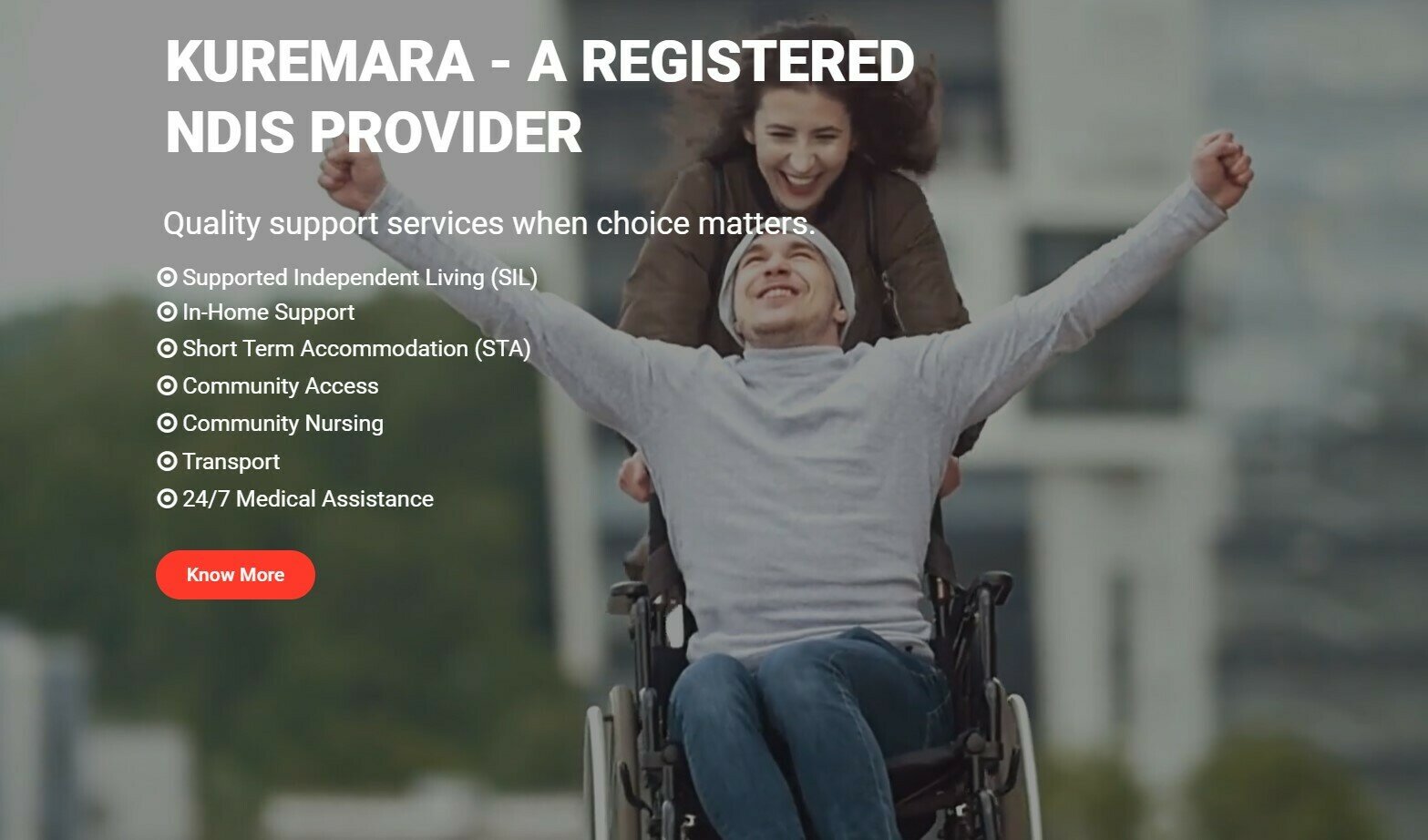
The National Disability Insurance Scheme (NDIS) is a transformative initiative in Australia that aims to support individuals with disabilities by providing them with the necessary resources and services to lead fulfilling lives. NDIS registered providers play a vital role in this system, offering a range of support services and empowering individuals to reach their full potential.






Supported Independent Living: A Path to Autonomy and Inclusion
Introduction:
Supported Independent Living (SIL) is a model of care and support designed to empower individuals with disabilities or special needs to live independently and participate fully in their communities. It focuses on providing the necessary assistance and resources to enable individuals to lead self-directed lives while fostering their autonomy and promoting social inclusion. In this article, we will explore the concept of Supported Independent Living and delve into the many benefits it offers in terms of autonomy, inclusion, and overall well-being.

Understanding Supported Independent Living:
Supported Independent Living revolves around the principle that individuals with disabilities should have the same rights and opportunities as their non-disabled peers to live and thrive independently. It emphasizes a person-centered approach, tailoring support services to meet the unique needs and goals of each individual. The goal is to enable individuals to have control over their lives, make informed decisions, and actively participate in their communities.

Key Elements of Supported Independent Living:
Individualized Support: SIL accommodation recognizes that each person has unique needs and aspirations. Therefore, it provides individualized support tailored to the specific requirements of each individual, whether it be assistance with daily living activities, managing finances, accessing healthcare, or developing independent living skills.
Choice and Control: SIL places a strong emphasis on personal choice and self-determination. Individuals are actively involved in decision-making processes related to their living arrangements, support services, and overall life goals. This empowers them to take ownership of their lives and make choices that align with their preferences and values.
Skill Development: SIL programs focus on enhancing individuals' independent living skills, including budgeting, cooking, personal care, transportation, and household management. By providing training and support in these areas, individuals gain the skills and confidence necessary to live independently and successfully navigate various aspects of daily life.
Social Inclusion: One of the core principles of SIL is to promote social inclusion. It aims to ensure that individuals have the opportunity to participate fully in their communities, engage in social activities, establish meaningful relationships, and contribute to society. SIL programs often provide assistance in accessing community resources, joining clubs or organizations, and participating in recreational or educational opportunities.
Benefits of Supported Independent Living:
The benefits of Supported Independent Living are significant. It enhances individuals' autonomy and self-direction, allowing them to make decisions based on their own needs and aspirations. This sense of control over their lives leads to increased confidence and personal fulfillment. Moreover, SIL supported accommodation improve individuals' quality of life by equipping them with the skills and support necessary for independent living. They can pursue their interests, engage in meaningful activities, and experience a sense of accomplishment.
Social integration and inclusion are essential aspects of SIL. By connecting individuals with their communities, supporting their participation in social activities, and facilitating meaningful relationships, SIL programs reduce isolation and promote a sense of belonging. This social integration enhances individuals' overall well-being and enriches their lives.

Supported Independent Living also contributes to personal growth and development. Through overcoming challenges and acquiring new skills, individuals can reach their full potential. SIL programs foster a continuous learning mindset and provide opportunities for personal growth, self-discovery, and the pursuit of personal goals.
Central to Supported Independent Living is the recognition of individuals' inherent dignity and worth. SIL programs prioritize treating individuals with respect, valuing their voices, and upholding their rights. This dignified approach fosters an environment where individuals feel valued, heard, and respected.

Autonomy and Self-Direction: SIL empowers individuals to have greater control over their lives. By providing tailored support, individuals can make decisions based on their own needs, preferences, and aspirations. This fosters a sense of autonomy and self-direction, leading to increased confidence and a greater sense of personal fulfillment.
Enhanced Quality of Life: Through SIL, individuals gain the skills and support necessary to live more independently. This translates into an improved quality of life, as they have greater opportunities to pursue their interests, engage in meaningful activities, and experience a sense of accomplishment in managing their own lives.
Social Integration and Inclusion: SIL programs facilitate social integration by helping individuals connect with their communities and build meaningful relationships. This reduces isolation and promotes a sense of belonging and inclusion. Individuals can actively participate in community activities, interact with others, and contribute their unique talents and perspectives.
Personal Growth and Development: Supported Independent Living encourages personal growth and development. By overcoming challenges and acquiring new skills, individuals can reach their full potential. SIL programs foster a continuous learning mindset and provide opportunities for personal growth, self-discovery, and the pursuit of personal goals.
Dignity and Respect: SIL recognizes the inherent dignity and worth of each individual. It promotes an environment where individuals are respected, valued, and treated with dignity. Support workers and caregivers in SIL programs are trained to uphold these principles, ensuring that individuals are treated as equals and their voices are heard.
Conclusion:
Supported Independent Living offers a pathway to autonomy, inclusion, and improved quality of life for individuals with disabilities or special needs. By providing individualized support, promoting choice and control, developing independent living skills, and fostering social inclusion, SIL programs empower individuals to lead self-directed lives and actively participate in their communities.


The National Disability Insurance Scheme (NDIS) is a transformative initiative in Australia that aims to support individuals with disabilities by providing them with the necessary resources and services to lead fulfilling lives. NDIS registered providers play a vital role in this system, offering a range of support services and empowering individuals to reach their full potential.





